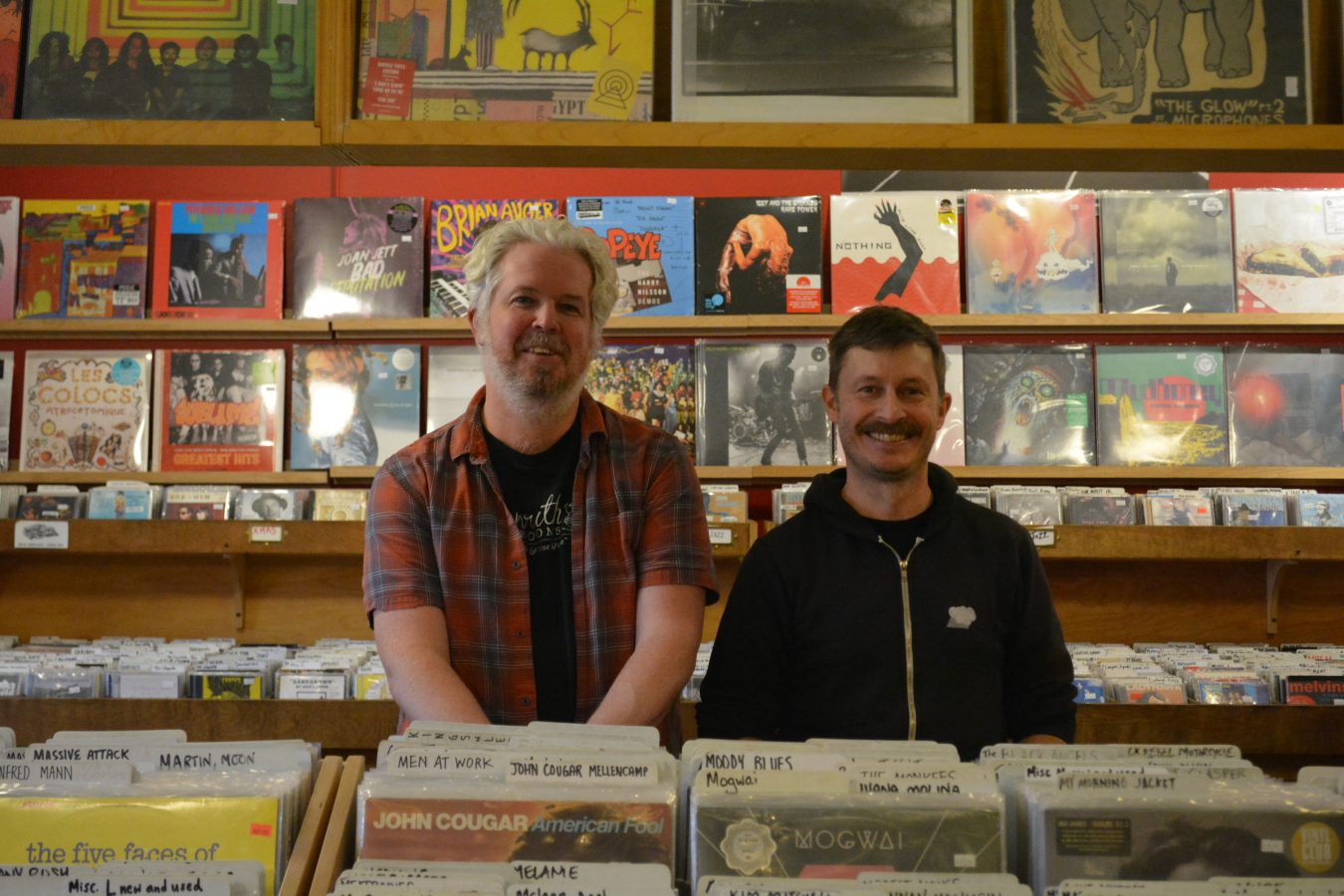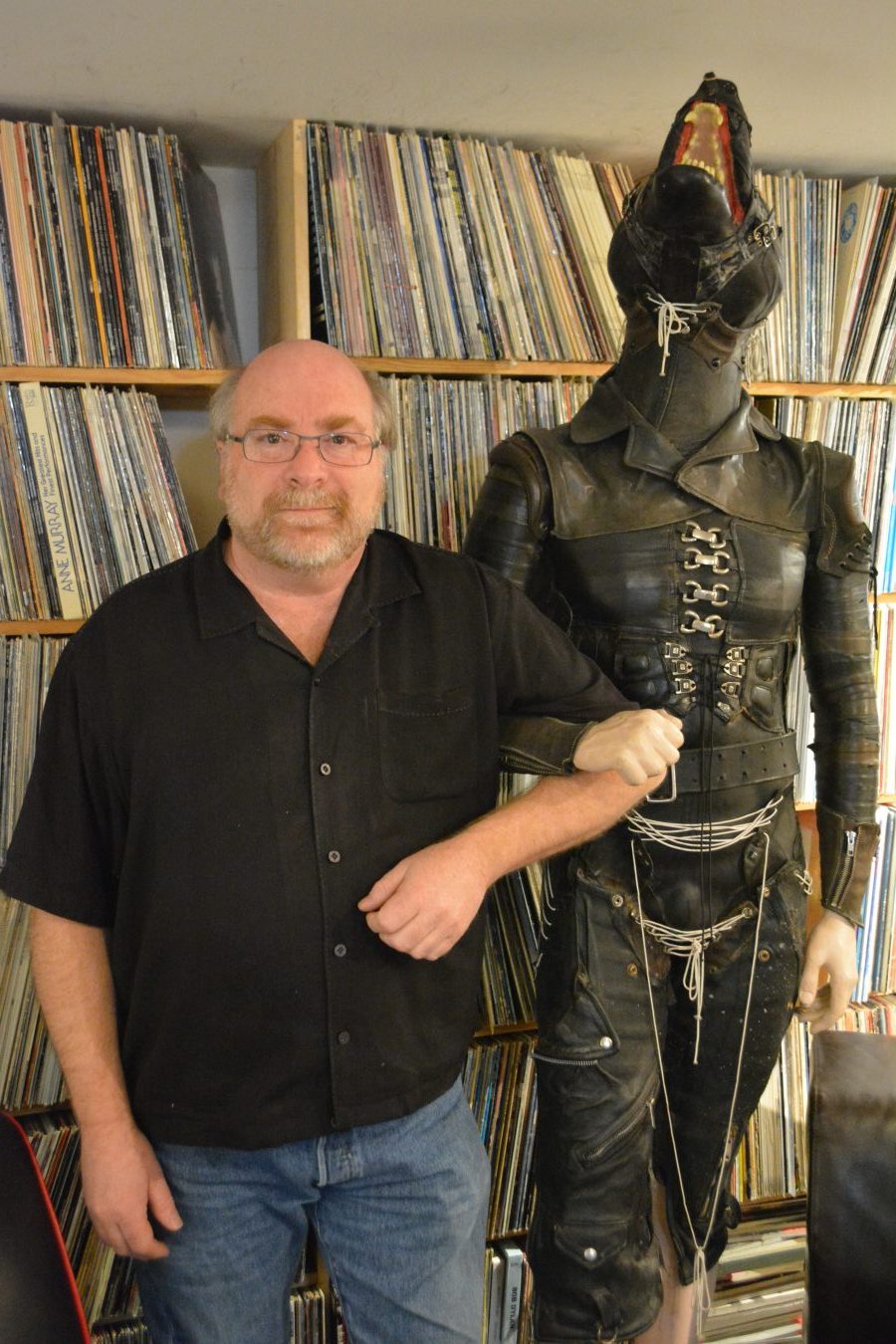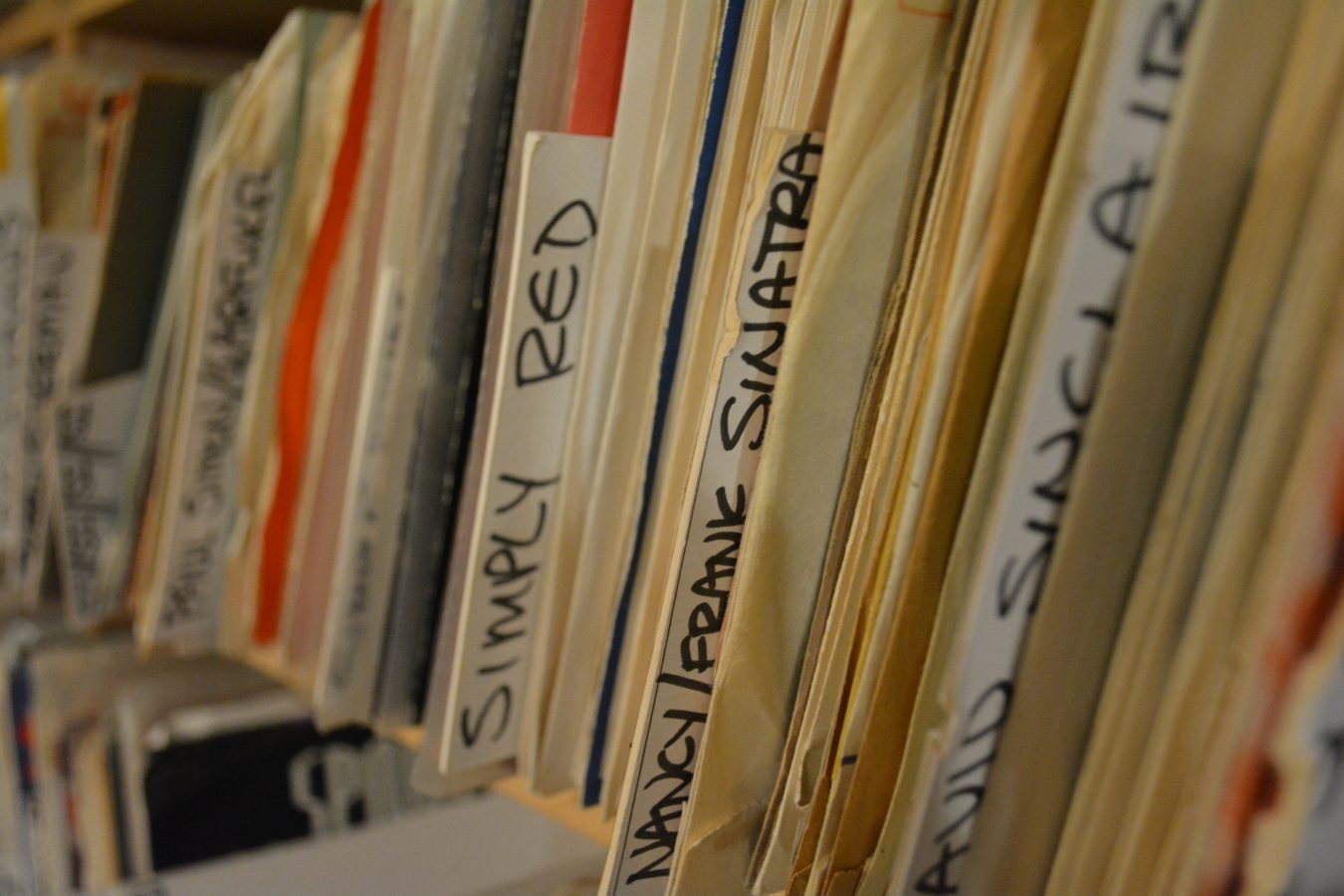The world of music retail has changed beyond recognition over the past 30 years.
The arrival and temporary dominance of CDs altered the look and feel of what were optimistically still called record stores, before the file-sharing revolution sent shock waves through an industry that never fully recovered. The big chains, like the dinosaurs before them, were too slow and cumbersome to avoid extinction. The once-mighty HMV superstore on the corner of Robson and Burrard in Vancouver is now a Victoria’s Secret. Today there are no HMV stores in Canada.
Of course, independent record shops have been hit hard, too, as recently exemplified by the November 2018 announced closing of Sikora’s Classical Records in Vancouver. But even in today’s digital music world, a handful of other small local vinyl stores (including but not limited to the following) are doing more than surviving—they’re thriving.
“There’s a record store ecology,” insists Dave Gowans of Red Cat Records. “Some neighbourhoods can support record shops. Good coffee, good breakfast, a bank, and a record shop: those are what you need on a Saturday morning.” Along with his friend Lasse Lutick, Gowans owns and runs two branches of Red Cat (one in Mount Pleasant, the other in East Vancouver). When the chance arose to buy the business and reinvent their roles within the music industry back in 2006, Gowans and Lutick—who had played together in Canadian indie rock band The Buttless Chaps—saw opportunity where others saw only doom.
“The store was going to close, but I could see the potential in it,” explains Gowans, hanging with Lutick among the stacks at their Main Street location. “Artists were starting to release things on vinyl again. I thought that if we did things differently, and fulfilled what people wanted, we could do well. We didn’t want to be a store that said, ‘We specialize in local music and rockabilly,’ and have specific back catalogues. The week we opened was the week Arcade Fire’s Neon Bible came out. We ordered 100 CDs and 50 records, put them on the wall, and people bought it. That day I thought, ‘This could work.’”
“That was our goal from the start,” agrees Lutick. “We wanted to sell Joan Baez CDs and the latest craziest electronic music. We want all types of people to come in and feel welcome. The thing they have in common is that they love music and want to talk about it.”
That willingness to engage is at the heart of the modern record store’s business model. With a seemingly infinite amount of audio material (and opinions) accessible at the touch of a phone screen, shops like Red Cat provide spaces where people can meet to discuss and experience music. “It’s more like a community centre,” continues Gowans. “It’s always nice when someone says, ‘What’s this playing?’ It’s not like the ‘90s where record store clerks were terrifying.” And accompanying the changing role of the shopkeeper are new breeds of music-collecting archetypes. “There are multiple species,” explains Lutick. Customers range from older gentlemen looking for used classic rock, to teenagers and hipsters seeking out the latest and greatest, to young couples who use their record player as a way to disconnect from screen technology. Really anything, and anyone, goes.
It’s the same over on West Hastings, where Avi Shack has run Beat Street Records since 1996. As a working DJ back when DJs still loved vinyl, Shack turned a passion into a business. Although outwardly a specialty store focusing on hip hop and dance music, Beat Street now has racks featuring every genre known to music—and with that comes a diverse clientele. “Every day we have different artists and musicians in here,” says Shack. “Most of the local rappers and DJs buy their records here.” Even the one and only Elton John, who Shack acknowledges as “a vinyl guy,” has stopped in.
“You can’t download a record. It’s not the same. It doesn’t sound the same.”
But if Shack appears less then starstruck, it’s because community, not celebrity, is at the heart of his business. “We’ve always believed in being a community-based store, a place where people can come and meet people to talk about music,” he says. “You can find things that you weren’t looking for, learn, and be a part of something. There isn’t a record-collector type. They’re just people who love music.”
One of those people is Rob Frith, who has truly seen all the changes that music retail has had to offer. He opened Neptoon Records in 1981, moving from Fraser Street to its current home on Main Street 20 years ago. He’s weathered the CD and downloading storms, using his lifelong love of vinyl as the rock upon which to build his particular church.
“As a four-year-old kid in the 1950s, I discovered my mother’s record player and how to use it,” he remembers. “I was mesmerized. I was obsessed with records. I would ask for records for my birthday and Christmas. Not from specific artists. Just records. It was music. It overtook me and became everything.”
And while many people today prefer to stream or download their music, there are still many who crave a more analogue practise. “There’s a crowd who like to own things,” says Frith. “You can’t download a record. It’s not the same. It doesn’t sound the same. It’s something you can hold in your hand.” It’s a tangible, visceral ritual that has to be experienced to be understood. “Young people hear their friends talking about vinyl, then go into the basement and find their parents’ stereo and old records,” Frith continues. “They find an old Doobie Brothers record and think it’s kind of cool, so they come here and buy a new Kendrick Lamar album on vinyl and think that’s cool, too. They start buying a bit of everything. Nothing makes me happier than when a young person comes in and buys the first Doors record or Led Zeppelin I, then buys a Miles Davis album, then something new. They’re looking at the big picture, and I like having those kinds of people around.”
Like Red Cat and Beat Street, Neptoon has become a major melophile landmark in Vancouver. Its classic record store aesthetic has led it to become a popular location for multiple movies and TV shows, including Supernatural, Loudermilk, and So Weird. It’s also become an essential stop for visiting collectors. “You work seven days a week but if feels like a holiday,” Frith says. “We have great customers that love talking about music. Glenn Danzig [of Misfits] comes in here looking for 8-tracks for his car. He always puts us on the guestlist for his shows. Eric Burdon of The Animals asked if he could do a signing here.” That was a particularly big deal for Frith; when he was in Grade 7, he covered The Animals song “House of the Rising Sun” with his very first band.
Even so, there is one other notable customer who sticks out in Frith’s mind. It was an older fellow, whose face he recognized but could not place; they had been chatting for close to an hour when the man decided to make some purchases. “He was piling records onto the counter and pulled out an American credit card to pay, so I say, ‘I see you’re from out of town,’” Frith recalls. “He says, ‘I’m working. I’m recording an album here.’ I say, ‘What band are you in?’ He says, ‘R.E.M.’ It was Peter Buck! I was totally embarrassed.” Regardless of any particular client, though, the fact is that Vancouver’s remaining record stores have survived due to a combination of passion and perseverance. As the digital world propels ever forward, people are beginning to crave simpler moments—ones marked by the familiar sound of needle dropping on vinyl.











